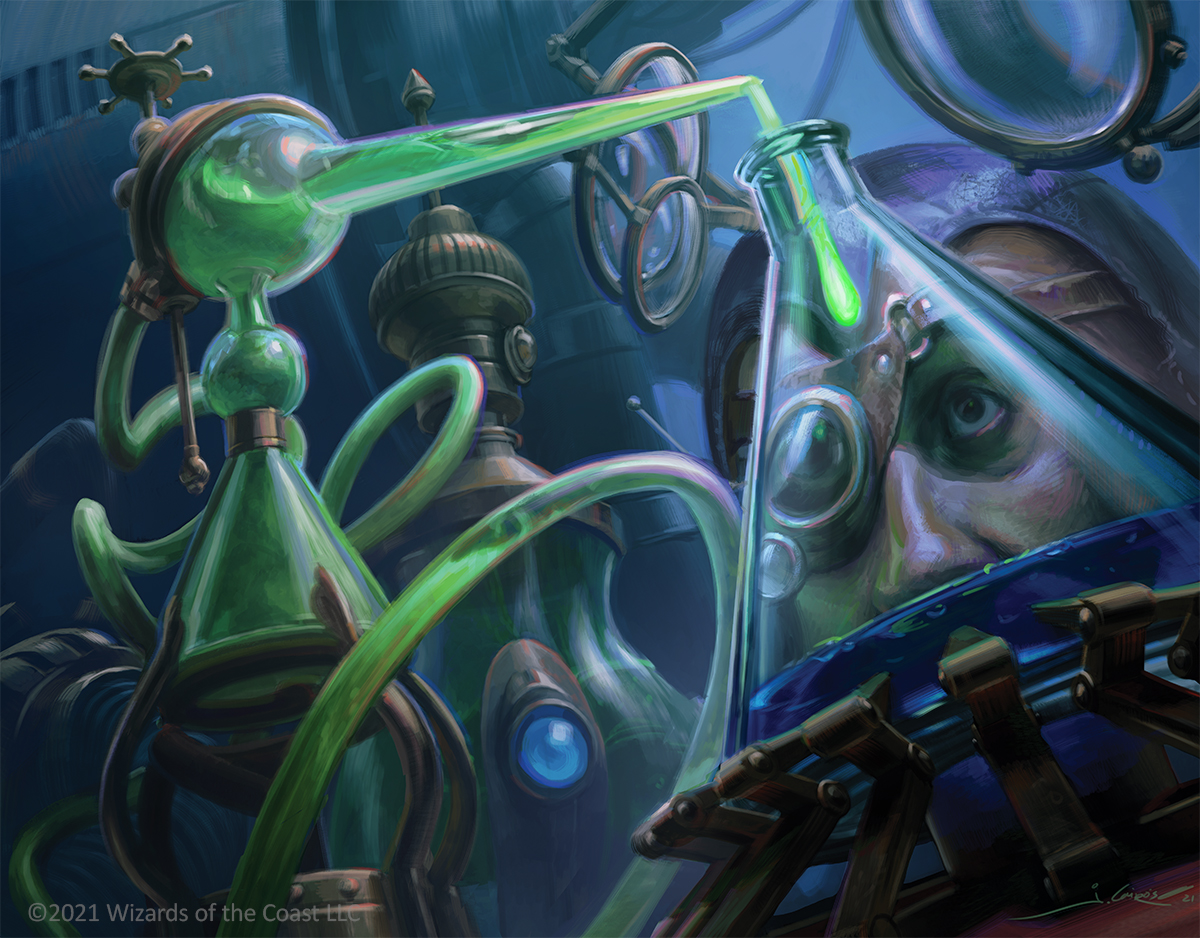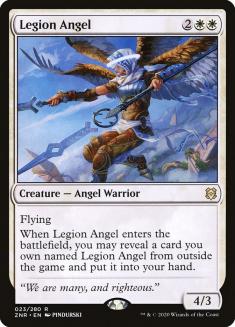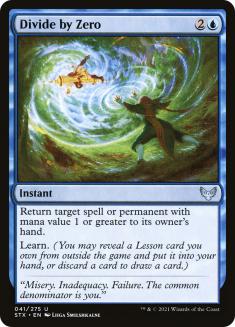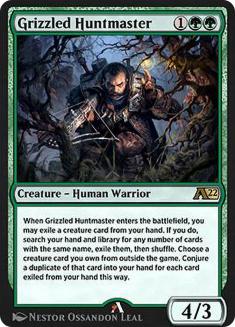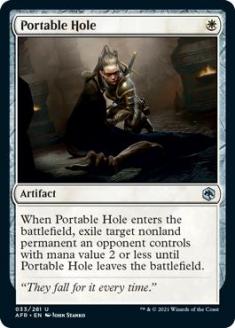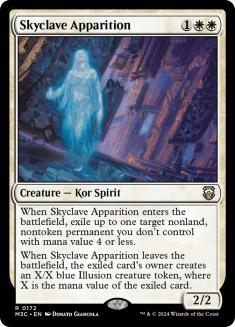On Saturday, January 15th, we’ll have the first Alchemy rendition of the Arena Open. For those who don’t know, the Arena Opens are tournaments that happen over two days on Magic Arena and that can result in winning prizes of up to $2,500 (in USD). In this COVID-19, Organized Play-less world, this is probably as good as it’ll get for most people in terms of competitive tournaments that do not require an invitation.
Personally I love these tournaments and I’ve played every single one of them that I could, so if you haven’t tried them yet, I recommend that you do so. In today’s article, I’ll break down everything you need to know to maximize your chances of winning that $2,500, including the decks I would play.
You can find all the information on the tournament above, but the main points are:
- The tournament is open to everybody; no qualification is required.
- They are “asynchronous” in the sense that there aren’t any rounds or pairings. You can play your matches whenever you want inside the given time window. This is very helpful for people who cannot dedicate a whole uninterrupted day to a tournament.
- You can play Day 1 as many times as you want until you qualify. The limiting factors are, of course, the entry fee (it’s not a cheap tournament) and your time and desire to keep playing. Given unlimited resources, you’re basically guaranteed to make Day 2.
- There are two different ways to play Day 1; you can play Best-of-One or Best-of-Three. Day 2 is always Best-of-Three.
Best-of-One VS Best-of-Three
The first question people ask is whether they should play Best-of-One (Bo1) or Best-of-Three (Bo3).
I feel very strongly that Best-of-One is better. I’m normally a much bigger fan of Bo3, but Bo1 is such a better proposition in the Arena Open that all my Day 1s so far have been Bo1, and this one will be too.
If you play Bo1, then you play until you reach seven match wins or three match losses. This means a record of 7-2 is good enough to make Day 2. If you play Bo3, then you play up to four match wins or one match loss, meaning you need to go 4-0 to qualify. Here’s the full breakdown:
Day 1: Best-of-One Alchemy
| Wins | Rewards |
|---|---|
| 7 wins | Day 2 invitation token |
| 6 wins | 2,500 gems |
| 5 wins | 1,000 gems |
| 0-4 wins | No rewards |
Day 1: Best-of-Three Alchemy
| Wins | Rewards |
|---|---|
| 4 wins | Day 2 invitation token |
| 3 wins | 5,000 gems |
| 2 wins | 3,000 gems |
| 1 wins | 1,000 gems |
| 0 wins | No rewards |
Simply put, 7-2 is a much easier record to achieve than 4-0. Let me borrow the calculation from Reddit user Djhuti to further illustrate.
In his thread, Djhuti concludes three main things:
- Bo1 is more likely to qualify for Day 2 than Bo3 regardless of win rate.
- Bo3 outperforms Bo1 in terms of Gem rewards.
- The chance to qualify per gems spent ratio is variable depending on your win rate. If it’s over 57%, then you’re better off playing Bo3; if it’s under 57%, you’re better off playing Bo1 (though I believe this is not even factoring in the monetary EV, which improves things for Bo1 since it’s easier to Day 2).
I’m not going to delve deeply into how to get to these numbers because a) the numbers have slightly changed since this math was done last year, b) I don’t even know how to do that, and c) it’s not the point of the article. I’m not trying to convince you to play Bo1 “because math,” but “because logic.” The only math you need to know is this — achieving 7-2 is simply easier than achieving 4-0.
There are, however, some factors that do not enter the equation here. For example, what if gems are your limiting factor and you can’t fire off a lot of bullets? In this case, I think it’s still better to play Bo1. Why? Because the competition is significantly weaker and more predictable.
First off, if you’re very new to the format or to the game in general, you’re likely playing Bo1; Bo3 is a more “tournament”-based thing. This doesn’t mean that everyone that plays Bo1 is new (last time I played Bo1 myself and got paired versus Marcio Carvalho, one of the best players in the world), but I suspect the vast majority of newer players will queue into Bo1.
Other than that, it’s easy to tell, just looking at the numbers, that Bo1 is a better endeavor than Bo3. Therefore, most people should gravitate towards Bo1. The only people who do not do that are those who have a very good reason not to.
It could be, for example, that they have a deck they truly like and have a lot of experience with — enough so that they think it offsets the smaller chance to qualify. It could be that they did the math and thought they had an over 57% win rate; therefore, they chose Bo3 because it’s higher value. Perhaps they are particularly good at sideboarding and think they can get an edge there.
Regardless of the reason, people who play Bo3 usually think they will win enough more in it to make up for the systemic deficiencies, which means they’re usually stronger opponents on average. Simply put, do you want to play against the players who think they’re above 57% to win, or those who think they are below 57%? Even if you think you are highly favored against the Bo3 field, are you highly favored versus all the people who themselves think they are highly favored?
Bo1 is also more predictable than Bo3. Aggro decks run rampant in Bo1; if you tune your deck to beat aggro, then you will have an easier time against most of the field. In Bo3, you sort of play against everything.
Adding all of those together, it becomes evident to me that you should play Bo1 and not Bo3, regardless of what your normal win rate is and regardless of whether you care about the gems or just maximizing time, because your win rate will naturally be much higher on Bo1 in the Arena Open specifically than in Bo3. The only situations you should play Bo3 are when you absolutely detest Bo1 and you’re just not going to enjoy yourself, and when you have a Bo3 deck you really like that doesn’t translate well into Bo1.
Which Deck Should You Play?
A lot of people who don’t play much Bo1 will simply port their deck over, remove their sideboards and call it a day. I believe this is the wrong approach, as there are a couple of differences you need to be aware of.
No Sideboard Plans
This is a bit obvious, but people often ignore it. A lot of the time, when we build a deck, we take sideboard plans into account (and if we don’t, we should). For example, it’s possible we want a fifth removal spell in the maindeck, but we only have four cards to bring in versus creatureless decks in Games 2 and 3, so we end up with only four removal spells. Obviously this constraint does not exist here.
Sometimes we play a card in our maindeck specifically because of how it behaves in sideboarded games. For example, there are Legacy players who will play Monastery Mentor over True-Name Nemesis because they specifically want a nonblue threat to dodge Pyroblast in Games 2 and 3, even though they might prefer True-Name Nemesis if they were only playing one game.
There are also occasions of playing a non-graveyard card (such as Aria of Flame in your Storm deck) over a graveyard-based card such as Pyromancer Ascension specifically because you expect to get hit by graveyard hate after sideboarding, even though the Ascension would be better in Game 1. For a more recent example, Colossus Hammer decks in Modern often play Thoughtseize to save the sideboard slots, whereas if there’s no sideboarding involved they might want to play something else. In Bo1, all those considerations go out the window.
Infinite Sideboard Space
In Bo3, sideboard space is valuable, as it takes away from cards that you could sideboard in. In Bo1, you never sideboard anything in, so you have infinite room for stuff like Lessons, and by “infinite” I mean exactly seven spots — which is still way more than you normally get. Any card that uses your sideboard is effectively free to use unless it demands more than those seven slots, and you should make use of that. Mono-White decks, for example, should almost always play one copy of Legion Angel, given that playing three of them in the sideboard costs nothing. Cards with learn obviously get better as well, as does stuff like Grizzled Huntmaster.
Much Greater Prevalence of Aggro Decks
In Bo1, aggro decks are both better and more popular than control decks, compared to Bo3. This is because newer players will usually gravitate towards aggro decks, but also because control decks make better use of sideboarding in general; they are full of reactive cards, so they can remove cards that are bad versus someone and bring in cards that are great. Aggro decks rarely have cards that are “bad” versus someone, and they rarely have strong upgrades, as they are always trying to fulfill their own gameplay, so if there were a card that was better at doing that, then they’d be maindecking it.
On top of that, Bo1 has a hand-fixing algorithm that gives you a better spell/land ratio. It’s not a perfect algorithm, but you will find those one-lander or six-lander hands a lot less often in Bo1. This is more meaningful for aggro decks, which have always struggled with land count, as they usually lack the hand fixing mechanisms that control decks have access to. In a control deck, if you draw two extra lands, it’s usually okay, whereas in aggro it can be a death sentence.
Does this mean you should yourself play aggro decks? Not necessarily, but you should definitely take this phenomenon into account. For example, you should never ever play a card like Negate or Test of Talents maindeck on Day 1 of the Arena Open, and you should cut some amount of draw spells, discard spells, and countermagic for removal and sweepers. The way I see it, there are two possible approaches:
1. You play aggro tuned for aggro. This is the approach I usually choose, because it’s the fastest, even though it’s not necessarily the best-EV approach in terms of gems. When you play an aggro deck, you can be done with all your games in less than an hour, and that’s valuable to me. If I lose, I’ll just try again, though I usually limit myself to a couple of runs. I’m not one of those people who will try ten times.
In the last Constructed Arena Open I played, for example, I chose to play Mono-White Aggro❄, and then I tweaked it for other aggro decks. I had more maindeck Portable Holes and Skyclave Apparitions, and fewer Elite Spellbinder and Reidane, God of the Worthy. I didn’t think this was literally the best deck to play, but it was the best suited for a tournament that allowed infinite buy-ins (it was the best combination of powerful + fast + made use of Bo1’s unique mechanics).
2. You play an anti-aggro control deck. This is likely the best approach, but it’ll also be painfully slower. A run with one of these decks might take two or three times as much as a run with aggro, whether you end up winning or losing. Personally, I’d rather be 100% faster and 2% worse, but your mileage may vary here.
For this Arena Open in particular, my choice for Day 1 is Mono-Green Aggro❄, as it’s a powerful deck that can win or lose very quickly.
Creatures (25)
- 4 Kazandu Mammoth
- 4 Old-Growth Troll
- 2 Sculptor of Winter
- 4 Werewolf Pack Leader
- 3 Ulvenwald Oddity
- 4 Grizzled Huntmaster
- 4 Tenacious Pup
Lands (23)
Spells (12)

Is this deck the best? Not really, but it checks a lot of my boxes for a good Arena Open deck. It’s an aggro deck; it’s tuned towards creatures (it has four Inscription of Abundance and no Snakeskin Veil, whereas normally I’d play at least two Veil); and it makes good use of the sideboard with Grizzled Huntmaster. As a bonus, it’s quite cheap to craft if you’ve already played Standard before.
If this deck doesn’t work out, I might play something like this Gruul Werewolves list by Tomas Pokorny, except I’d probably add a couple of removal spells here or there to account for an aggro field.
Creatures (30)
- 2 Magda, Brazen Outlaw
- 4 Jaspera Sentinel
- 4 Werewolf Pack Leader
- 2 Tovolar, Dire Overlord
- 4 Reckless Stormseeker
- 2 Halana and Alena, Partners
- 4 Town-Razer Tyrant
- 2 Rahilda, Wanted Cutthroat
- 2 Lupine Harbingers
- 4 Tenacious Pup
Lands (21)
Spells (9)

If I only had one bullet, however, I would play a Orzhov Control deck, again geared towards beating creatures. I believe this is a better deck than Mono-Green Aggro❄ for the environment I expect but also much slower.
Creatures (14)
Planeswalkers (2)
Lands (23)
Spells (21)

Please note that this is not necessarily the list I recommend in Alchemy — just the list I would play in the Day 1 of the Arena Open, which is very much creature-centric. Alternatively, you could play Mono-Black or almost Mono-Black and play Blood on the Snow too.
Day 2
For Day 2, things change. Now you no longer have infinite bullets; you have one bullet. Therefore, considerations like the time it takes for games to end become irrelevant (unless the window to play in the tournament is almost over). Keep in mind that there is a registration window and a play window, and they are different! Matches can start up to 5 PM PT, but the sign-up window is from 6 AM – 8 AM PT and you must sign up at that time. I honestly don’t see a reason for this sign-up window to exist at all other than to make people miss the tournament for no reason, but if you miss it you will not be able to play. This has happened to several people I know.
Day 2 is much closer to a regular tournament than Day 1, but there are still some peculiarities, because a lot of people who qualified in Bo1 will simply hastily construct a sideboard and port their decks to Bo3. As such, you want to make sure you beat:
- Creature decks. There are still more creature decks on Day 2 of the Arena Open than in a regular tournament, because a lot of Day 1 decks carry through.
- Decks that beat creature decks. People who played decks like Orzhov Control or Mono-Black Control on Day 1 likely had a disproportionately high success rate, since they preyed on all the aggro decks, and a lot of these people will play these decks again.
This combination means that the best deck for Day 2 of an Arena Open is usually a deck that is tuned towards beating creatures but that can also go over the top of the other control decks, and that’s usually a blue control deck. Historically speaking, take a look at the decks I’ve played on Day 2 of the Arena Open:
- Temur Ramp, full of sweepers to beat creatures and Field of the Dead + X-spells to beat other anti-creature decks.
- Jeskai Control with maindeck Anger of the Gods, Lightning Helix, and Unholy Heat.
- Sultai Ramp (Yorion) with a ton of maindeck Elder Gargaroths.
- Izzet Epiphany with a bunch of maindeck Cinderclasms and Demon Bolts.
So, basically, a bunch of decks that can go over the top of people but that are still tuned for aggro decks. In comparison, my Day 1 decks for these tournaments? Mono-Red Burn, Mono-White Humans, Mono-White Aggro❄, and Mono-White Aggro❄. So, you see, I really do think this is the best strategy!
For the Alchemy Open, the decks that seem to fit these criteria are the Azorius and Esper decks. Alrund’s Epiphany would normally work, but that card has been nerfed too much and I feel like playing a Key to the Archive strategy is better. Here’s a list by Gavin Bennett:
Creatures (2)
Planeswalkers (4)
Lands (21)
Spells (33)

This deck already feels tuned towards aggro to me. It has four Divine Purge, two Doomskar, two Sunset Revelry, three Fateful Absence, and even a Fading Hope. The only Counterspell is Divide by Zero — no Negates or Disdainful Strokes maindeck or anything. At the same time, it has enough draw spells that it’s going to beat the black-based decks most of the time. I’m not sure this will be the exact list I play, but it seems like a pretty good starting point towards what I’m looking for, so this is what I’m testing right now. Incidentally, Brad Nelson also recommended the same list in his article examining competitive Alchemy last week.
So, to sum it up:
- Play Best-of-One (Bo1) on Day 1 regardless of your skill level.
- On Day 1, play an aggro deck tuned towards beating other aggro decks if you value time the most, or a super anti-aggro deck if you don’t mind being slow.
- If you want to play something else, make sure to tune it towards beating aggro — cut counterspells, discard spells, and card drawing for sweepers, removal, and lifegain.
- On Day 2, play a control deck that can go over the top of the “anti-aggro” deck, but also tune it towards beating aggro.
With that said, good luck in the Arena Open and may you win the $2,500!

